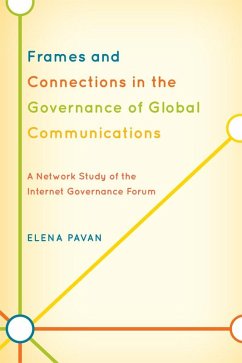The governance of global communications is consolidating as a field where innovative political practices of multi-actor collaboration are being experimented. Within this broad political landscape, the Internet governance domain is emerging as one of the most relevant areas where institutional and non-institutional actors are converging in order to reform collectively governance mechanisms that will determine the future developments of the Internet technology. This book adopts a network approach to study the progressive and collective construction of a new discourse on Internet governance fostered by the realization of the United Nations Internet Governance Forum, a new "space for multi-stakeholder policy-dialogue" (WSIS Tunis Agenda 2005, art. 72). Looking both at how semantic and social connections are created in the online and the offline discursive spaces, this book seeks to provide insights on how principles of democratic collaboration between institutional and non-institutional actors are translated into actual political dynamics; on how the global political agenda on the governance of the Internet comes to be shaped thanks to the provision of heterogeneous and sometimes opposite thematic inputs; and, finally, on how the roles of States, intergovernmental bodies, civil society entities in participatory supra-national politics are progressively being (re)defined. Starting form the Internet governance case study, this books aims at providing an alternative approach to the study of supra-national politics as well as of global communication governance processes: one that considers simultaneously contents and processes of political dynamics and examines how immaterial resources, such as information and communication, become a new field for multi-actor politics experiments, conflicts and network construction.
Bitte wählen Sie Ihr Anliegen aus.
Rechnungen
Retourenschein anfordern
Bestellstatus
Storno









